What Are the Leading Causes of Female Infertility?
Fertility Treatment
In a normal pregnancy, ovulation occurs about 14 days before the start of the next menstrual cycle. The released egg joins the sperm after entering the fallopian tube and is fertilized. Then it moves toward the uterus and implants into the endometrium (uterus lining).
According to statistics, the chance of pregnancy in young couples is 1 to 5 each month. It is also reported that the percentage of male and female infertility is equal. Although, the female reproductive system is much more complicated than the male system. Therefore, it takes more time to identify infertility causes in females.
As pregnancy chances increase after detecting the causes of female infertility, it is essential to take timely measures to diagnose these causes and choose the most suitable treatment. Causes of female infertility may include reproductive system disorders, ovarian conditions, underlying diseases, or hormonal imbalances.
What Is Female Infertility?
Infertility is a condition where a couple cannot get pregnant - despite one year of unprotected sex - due to male, female, or unexplained causes.
With the fear of infertility, most women go to infertility treatment centers after several unsuccessful attempts to get pregnant. So, let's learn the exact definition of an "infertile person" and the best time to start the treatment process.
An infertile woman is usually defined as a woman under 35 who failed to get pregnant after one year of trying or a woman aged 35 to 40 with 6 months of failed trying. As infertility treatment is more serious at age 40, infertile women should immediately identify the cause of their infertility and start the treatment process.

How Common Is Female Infertility?
According to studies, at least 10% of women have fertility problems. The probability of being infertile increases with age.
What Are the Symptoms of Female Infertility?
Female infertility is associated with definite or warning signs and symptoms that include:
- Irregular menstruation, which refers to early (every two weeks) or late (more than 35 days) periods due to ovulation problems;
- Excessive growth of dark hair on the face, chest, and back due to excess male hormones, which may be one of the symptoms of PCOS if accompanied by irregular menstruation (in case the patient does not use any special medications);
- Hormonal problems that cause a wide range of symptoms, such as coarse hair growth on certain parts of the body, thinning hair, hair loss, excess weight, skin complications like excessive acne, pain during sex, change in sexual desire, nipple discharge (Galactorrhea) other than breastfeeding days, etc.

What Are the Causes of Female Infertility?
As said earlier, the released egg from the ovaries is sent to the uterine tubes in a natural pregnancy. There, the egg meets the sperm and gets fertilized. After fertilization, the primary embryo moves to the uterus and implants into the lining.
Looking at this process, the causes of female infertility are usually as follows:
- Age;
- Premature menopause;
- Low-quality eggs;
- Fallopian tube disorders;
- Uterine problems;
- Cervical disorders;
- Infection;
- Endometriosis
- Endometrial polyps;
- Unexplained causes;
This article will explain each in detail:
Age, One of the Main Female Infertility Reasons
Women who decide to get pregnant at an older age will face more infertility issues. The reason is that egg numbers and female fertility decrease with age. About one-third of women over 35 years old have infertility. Furthermore, since egg quality decreases with age, it causes fetal chromosomal abnormalities that will result in infertility and increased abortions.
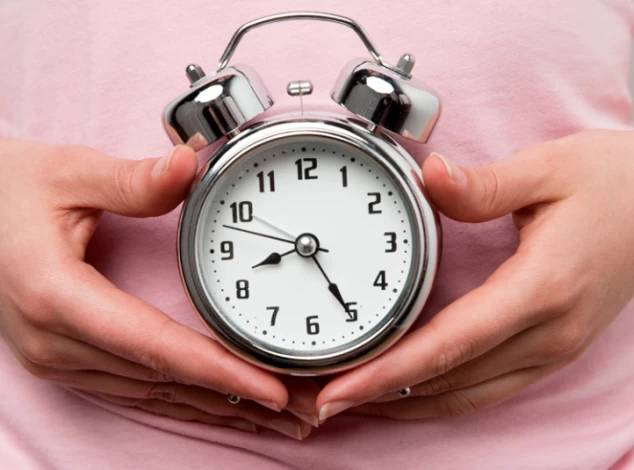
Premature or early menopause
Fertility naturally decreases with age as women approach menopause. However, women sometimes go through menopause before age 40 due to the premature reduced number of ovarian follicles. Some risk factors may cause early menopause, including smoking, past radiation therapy, chemotherapy, and autoimmune disorders.
Ovulation disorders
The function of the ovaries is to produce healthy eggs. However, the production of eggs is sometimes disrupted due to hormonal imbalances. In other words, ovulation disorders can cause infertility symptoms such as irregular periods, changes in menstrual blood volume, late or absent periods, back and vaginal pain, muscle cramps, etc.
Ovulation disorders may lead to the following problems:
- Premature menopause or primary ovarian insufficiency before the age of 40;
- High levels of androgens cause polycystic ovary syndrome (PCOS);
- Low-quality eggs or genetic disorders;
- Hyperprolactinemia (high prolactin levels) in conditions other than pregnancy and breastfeeding;
- Underactive or overactive thyroid;
- Chronic diseases like cancer or AIDS (HIV).
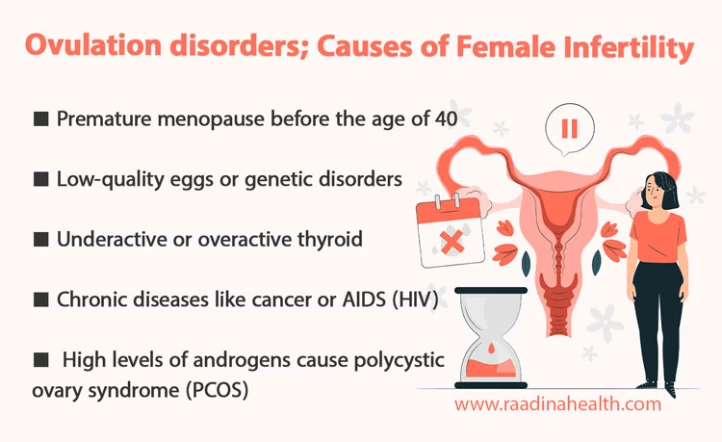
Fallopian tubes disorders
Fallopian tubes are the pathway between the ovaries and the uterus. Therefore, they must be healthy and open. Sometimes, fallopian tubes are blocked due to infections or pelvis disorders, as a result of which they lose their ability to transfer eggs. Aside from infection, these tubes may be blocked by disease or damaged from pelvic and cervical surgery.
Non-cancerous tumors in the uterus called uterine fibroids also can block the path or enlarge the uterus size, which will lengthen the path of sperm transport.
Having a history of using sterilization treatments also increases the probability of female infertility. Therefore, the blockage of fallopian tubes reduces the chance of fertility even though it is treatable.
Uterine problems
The uterine anatomy is crucial in successfully transporting sperm to the fallopian tubes to join the egg. On the other hand, the uterus must be in good hormonal and anatomical condition for the embryo to implant. Female infertility causes are mostly related to uterine problems.
The endometrium is a layer of tissue inside the uterus that naturally proliferates at the beginning of the menstrual cycle. The uterine endometrium thickens in the middle of the cycle to prepare a suitable environment for embryo development. The uterine structural abnormalities that affect female fertility include the arcuate uterus, unicornuate or bicornuate uterus, uterine polyp, fibroids, double uterus, and septate uterus.
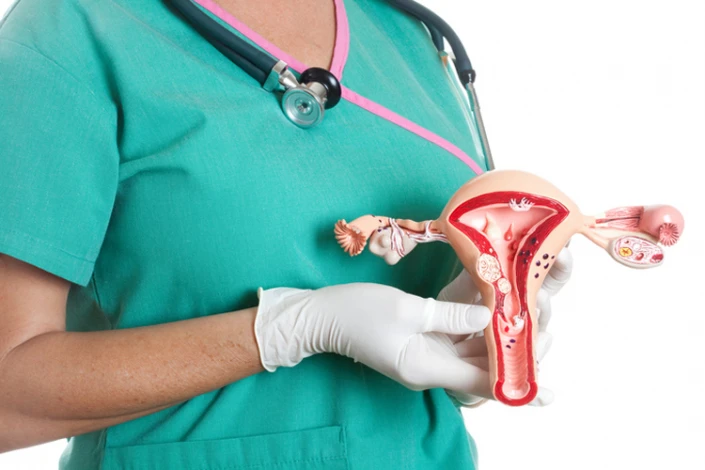
Cervical disorders
Abnormal cervical mucus may prevent sperm and egg from meeting and make sperm unable to penetrate the egg. In such a situation, it is necessary to consult a gynecologist to prevent more serious disorders.
Infection
Infections in the internal or external female reproductive system can cause female infertility. Infection may damage female internal reproductive organs, including ovaries, fallopian tubes (uterine tubes), and uterus, leading to serious conditions like blocked fallopian tubes. There are also various types of vaginal infections, such as bacterial vaginosis, gonorrhea, and chlamydia, which may include symptoms like itching, burning, and foul smell. These conditions can cause uterine synechiae and infertility.
Avoiding high-risk behaviors and regular examinations by a gynecologist can help reduce the risk of infection and prevent its complications (such as miscarriage, premature rupture of membranes, and premature labor).
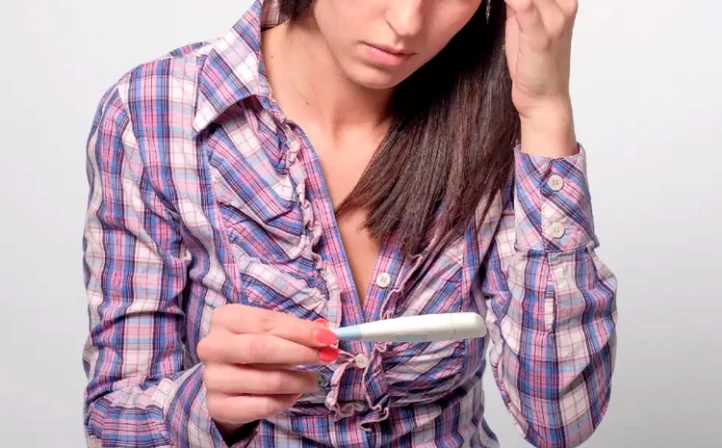
Endometrial polyps
Uterine polyps, or endometrial polyps, occur due to overgrowing of cells in the uterus lining and will affect embryo implantation and fertility.
Polycystic ovary syndrome (PCOS)
PCOS occurs when immature follicles accumulate in the ovaries and appear as cysts. In PCOS conditions, male endogen hormones are released and will cause symptoms such as increased hair growth, pimples, irregular menstruation, etc.
The causes of PCOS also include obesity and insulin resistance, and each factor has a specific treatment.
Low-quality eggs
Women have a certain number of eggs at birth. Their body cannot make new eggs; their total number and quality decline with age. There is also the possibility of chromosomal abnormalities and running out of eggs before menopause. Treatment procedures like IVF, egg donation, fertility drugs like clomiphene citrate, etc., can help women treat infertility due to egg problems.
Endometriosis
Endometriosis is when the endometrium spreads to ovaries or fallopian tubes and damages them. Endometriosis negatively affects the movement of sperm and eggs, fallopian tubes, uterus, fertilization, and fetal growth. Endometriosis symptoms include heavy menstrual bleeding, vaginal pain, painful periods, and pain during intercourse. A laparoscopic surgery is required to extract the endometrial tissues outside the uterus. Endometriosis is asymptomatic in some cases, and it needs to be examined by a doctor.
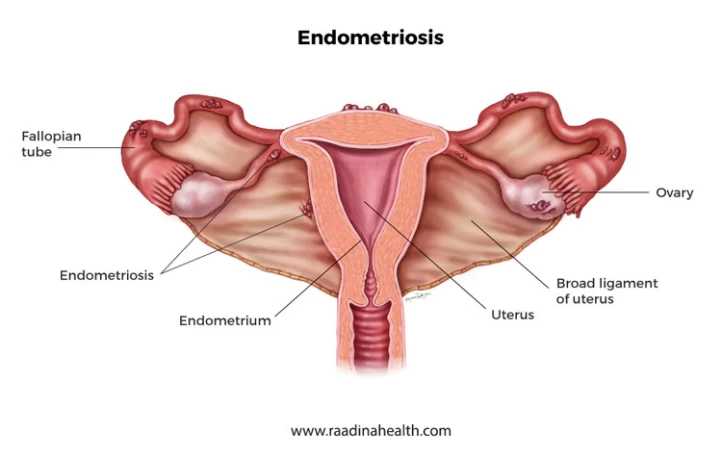
Ovarian Hyperstimulation Syndrome (OHSS)
OHSS is the excessive response of the ovary to excess hormones caused by performing infertility treatment methods such as in vitro fertilization (IVF), intrauterine insemination (IUI), ovulation stimulation, or taking injectable fertility drugs. Severe symptoms of Ovarian Hyperstimulation Syndrome (OHSS) include abdominal pain, Shortness of breath, and vomiting. Early diagnosis of ovarian hyperstimulation syndrome is very important in preventing problems such as miscarriage.
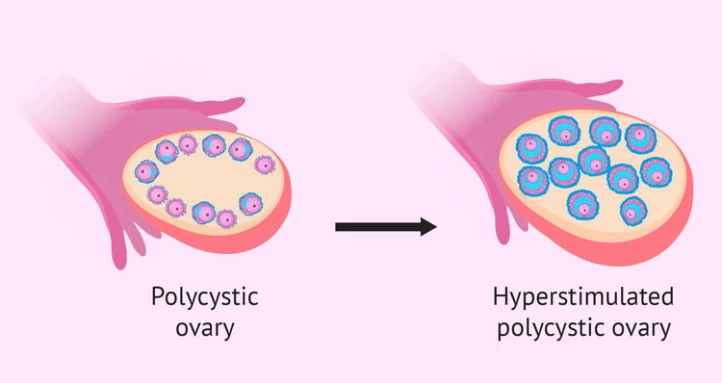
Asherman Syndrome: A Hidden Cause of Female Infertility
Asherman syndrome, also known as intrauterine adhesions or uterine synechiae, is a condition characterized by the formation of scar tissue within the uterine cavity, which can significantly impact female fertility. This scar tissue can partially or completely obliterate the uterine cavity, leading to various reproductive issues. The syndrome often arises as a result of trauma to the endometrial lining, typically following surgical procedures such as dilation and curettage (D&C), particularly when performed after a miscarriage or delivery. Other causes may include infections like tuberculosis or severe pelvic inflammatory disease.
Women with Asherman syndrome might experience a reduction in menstrual flow, painful periods, or even amenorrhea (absence of menstruation). This is because the scar tissue can obstruct the normal shedding of the endometrial lining. The condition is particularly concerning for women trying to conceive, as the adhesions can interfere with the implantation of the embryo or lead to recurrent miscarriages.
Diagnosis typically involves imaging studies such as hysteroscopy or hysterosalpingography, which allow for direct visualization of the adhesions within the uterus. Treatment generally involves surgical intervention to remove the scar tissue, often through hysteroscopic adhesiolysis. Post-surgical management might include hormonal therapy to promote healing and prevent reformation of adhesions, and in some cases, the use of a balloon or intrauterine device (IUD) to keep the uterine walls separated during the healing process.
Despite these treatments, some women may still experience challenges in achieving a successful pregnancy, highlighting the importance of early diagnosis and specialized care in managing Asherman syndrome.
Unexplained female infertility Causes
A group of unknown factors and causes also affect female infertility. According to specialists, slight differences in the function of the female reproductive system may cause unexplained infertility.
Furthermore, lifestyle behaviors, such as excessive coffee consumption, smoking, etc., affect infertility. Unexplained causes of female infertility can be treated using ovulation stimulation drugs and assisted reproductive technologies such as IVF.
Causes of Female Infertility Related to Underlying Diseases
Medication
There are several medicines taken which can increase the risk of female infertility.
Some of these drugs include:
- Long-term use of non-steroidal anti-inflammatory drugs (NSAIDs) such as ibuprofen and aspirin;
- Chemotherapy drugs that cause temporary or permanent ovarian conditions;
- Radiation therapy in organs close to the reproductive system;
- Illicit drugs such as cocaine or marijuana.
Autoimmune disorders
An unhealthy and weak female immune system may lead to some autoimmune diseases that destroy sperm and decrease the chance of conception and fertility.
Hormonal Problems
- High prolactin: The prolactin hormone causes milk production in women's bodies. High prolactin in non-pregnant women and new mothers is not normal and will affect ovulation and female fertility;
- Gonadotropin disorders: Abnormalities in the gonadotropin hormone cause regular or absent periods; therefore, it will result in ovulation disorders and infertility;
- Pituitary disorders: Disorders in pituitary hormones such as LH and FSH cause problems in the ovulation process and will cause female infertility.
Rare diseases
Other causes of female infertility are related to certain diseases such as Cushing's syndrome, coeliac (gluten intolerance), amenorrhea (absent menstruation at puberty), diabetes, kidney diseases, high cholesterol, sickle cell anemia, etc. Also, self-medication and sudden stopping of certain medications, contraceptives, and hormone therapy affect female fertility.

Effects of Lifestyle Factors on Female Infertility
Some of the unhealthy lifestyle behavior that causes female infertility are as follows:
- Smoking and excessive drinking;
- Stress and anxiety;
- Poor diet;
- Severe thinness or obesity;
- improper exercise.
What Are the Causes of Secondary Infertility?
Secondary infertility is the inability to conceive a second baby or carry a successful pregnancy. It has various causes and must be treated immediately.
How to Diagnose Female Infertility Causes?
To diagnose the cause of infertility, men and women are examined. Examining male-factor causes is much easier than those of females. The reason is that the causes of female infertility are varied and will be more difficult to diagnose. However, the level of male fertility can be recognized by a simple examination.
To diagnose female infertility, the doctor should know about the patient's menstrual periods, past pregnancies, miscarriages, pelvic pain, and abnormal vaginal spotting or discharge. The doctor's examination may include tests such as a Pap smear, pelvic examination, pelvic ultrasound, X-ray hysterosalpingogram (HSG), laparoscopy, Saline sonohysterogram (SIS), and hysteroscopy.
The infertility doctor may also ask for an AMH test to diagnose an ovarian mass. However, it checks the egg count and is not an indicator of female fertility.

How to Treat Female Infertility?
As diagnosing and treating female infertility is time-consuming, it is recommended that infertile couples be patient and follow their treatment process. Infertility treatment includes assisted reproductive methods such as IVF treatment, IUI, microinjection, etc. infertile couples can also choose surrogacy and adoption to start a family.
Infertility treatment itself is a time-consuming process. However, infertile couples sometimes lose more time by choosing inappropriate infertility treatment centers.
Time is a significant factor in the effectiveness of infertility treatment because, with time and aging, there will be a decline in female ovarian reserve and male sperm quality.
To diagnose the main infertility cause(s), patients should perform tests including pelvic examination, a transvaginal ultrasound, Follicle-stimulating hormone (FSH) or Estradiol blood test, Hysterosalpingography (HSG) to detect blocked fallopian tubes, etc.
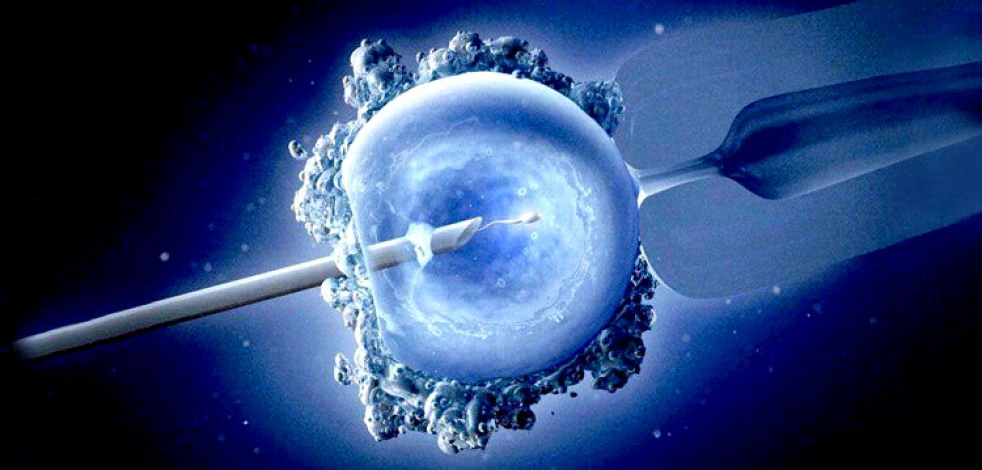
Surgical Procedures for Fertility Treatment
When the cause of female infertility is issues like ulcers or blocked fallopian tubes, surgery can be an option. In such a situation, surgery may help open the path to increase the chance of sperm meeting the egg.
When the cause of female infertility is endometriosis, laparoscopic surgery is a remedy. This surgery is done by making small abdominal incisions for entering the laparoscope tool (including camera, light, and surgical tools). It is also possible to remove scar tissue and implants with the help of surgery to reduce pain and increase the chances of pregnancy.
When to See a Doctor?
As said above, patients under 35 should see a doctor after one year of trying to get pregnant. For 35-year-old or older patients, the time of trying to get pregnant drops to six months.
What to Tell the Doctor?
Patients should give the following information to the doctor:
- Medicines they are taking including supplements, minerals, pills, capsules, vitamins, etc.;
- Frequencies of having sex without contraceptives;
- The date of their last sexual intercourse to have a child;
- Previous surgeries or treatment procedures, especially related to the reproductive system;
- History of chemotherapy or radiation exposure;
- History of sexually transmitted diseases;
- Amount and frequency of drug, cigarette. and alcohol intake;
- Genetic disorders and hereditary diseases in them and their family;
- Past thyroid, diabetes, or similar diseases in them and their family;
- regular or irregular period cycle;
- History of heavy menstrual bleeding, abnormal discharge, pelvic pain, and abdominal surgery.

Late Marriage and Egg Freezing
As the quality of eggs or sperm and fertility decreases with age, it is better to conceive before age 35.
Furthermore, it is possible to maintain the chances of pregnancy by freezing eggs for people who want to delay pregnancy to older age as well as in women with ovarian disorders or removed ovaries, late marriage, etc.
When to See a Doctor for Unmarried Girls?
Unmarried girls should be under the supervision of a specialist after reaching puberty and before marriage. Regular annual examinations help early treatment of any abnormal female symptoms and will prevent infertility.
There are methods to diagnose infertility in unmarried people. These methods include sperm and semen analysis in boys. In girls, they may include checking the cause of irregular menstruation, excessive obesity, or excessive hair growth and performing the hormonal test, ultrasound as a non-invasive method, etc.
How to Prevent Female Infertility?
Although most forms of female infertility cannot be prevented, the following strategies can reduce or postpone the probability of infertility.
- Having regular sexual intercourse during ovulation time (midpoint of the menstrual cycle), including 5 days before and 1 day after ovulation;
- Avoiding drugs, alcohol, and smoking;
- Doing regular exercise - for both women and men - to maintain general body health and increase fertility;
- Not using medicines that affect ovulation and reduce fertility;
- Being at an ideal weight (losing weight in obese people or gaining weight in people with extreme thinness) to balance hormones;
- Reducing caffeine in women to increase the chances of fertility;
- Regular visiting and consulting with a doctor.
Infertility Treatments in Iran
Whether the cause of your infertility is advanced age, low egg quality, or uterus disorders, Iranian fertility specialists can help you expand your family with the help of artificial insemination methods, especially the IVF technique. It is worth mentioning that there are multiple fertility centers with European standards and advanced laboratories in this country that provide you with high-quality healthcare services at an affordable price. Thus, Iran is a good option if you need immediate or novel treatment for your infertility and reproductive system disorders.
FAQs About Liposuction Aftercare
1. How does age affect female fertility?
As women age, particularly after the age of 35, both the quantity and quality of their eggs decline, making it more difficult to get pregnant. Additionally, the risk of miscarriage and genetic abnormalities increases with age.
2. What role do fallopian tubes play in female fertility?
Fallopian tubes are essential for female fertility because they are the pathways through which sperm travel to meet the egg (where fertilization happens). Blocked or damaged fallopian tubes can prevent conception, leading to female infertility.
3. How do uterine conditions affect fertility?
Uterine conditions such as fibroids, polyps, or congenital abnormalities can interfere with implantation or create an unsuitable environment for a fertilized egg to develop, leading to female infertility.
4. Can stress affect female fertility?
High levels of stress can impact hormonal balance and interfere with ovulation, potentially making it more difficult to get pregnant.
5. How to test if a woman is infertile?
To determine if a woman is infertile, doctors typically recommend a series of tests, including blood tests to evaluate hormone levels, pelvic ultrasounds to examine the ovaries and uterus, and hysterosalpingography (HSG) to check for blockages in the fallopian tubes. In some cases, a laparoscopy may be done to visually inspect the reproductive organs for issues like endometriosis or adhesions.






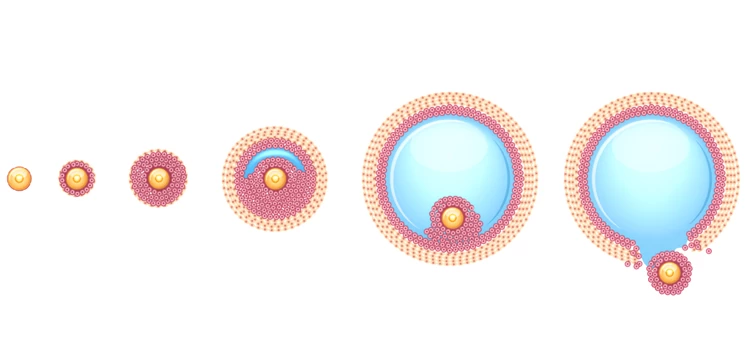
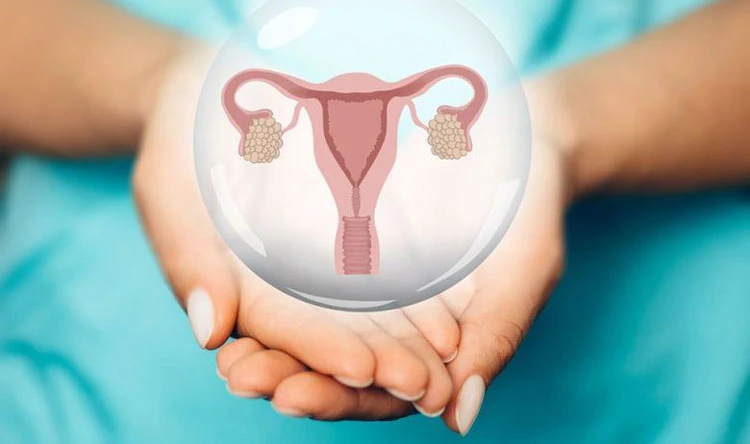
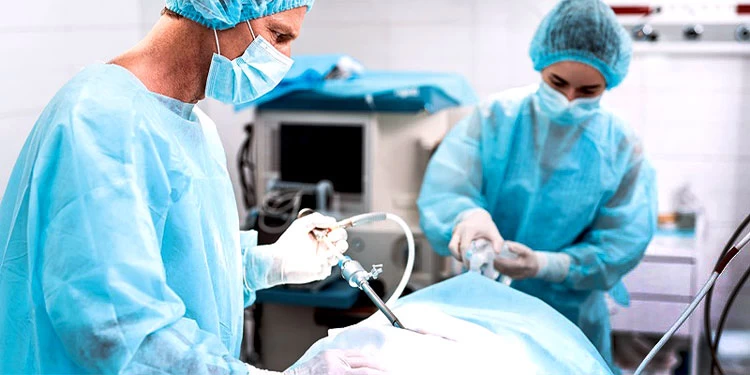
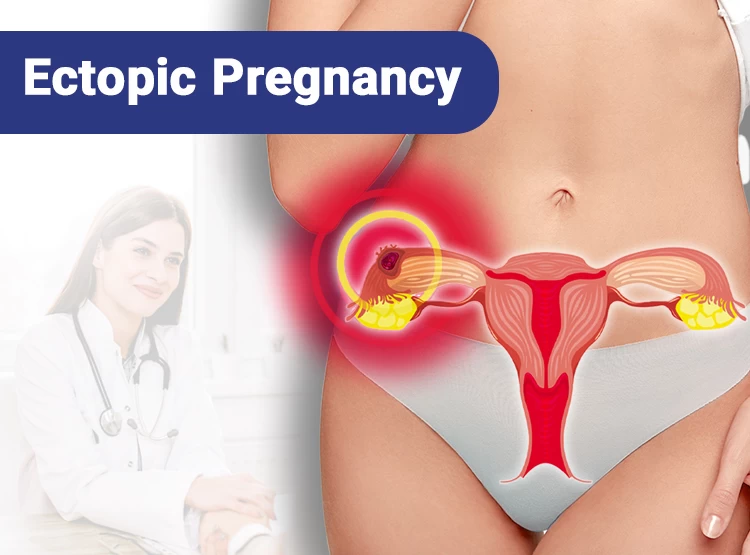
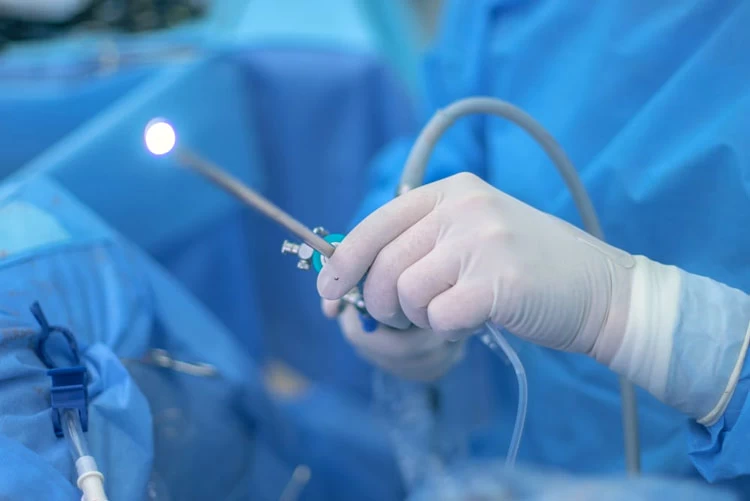
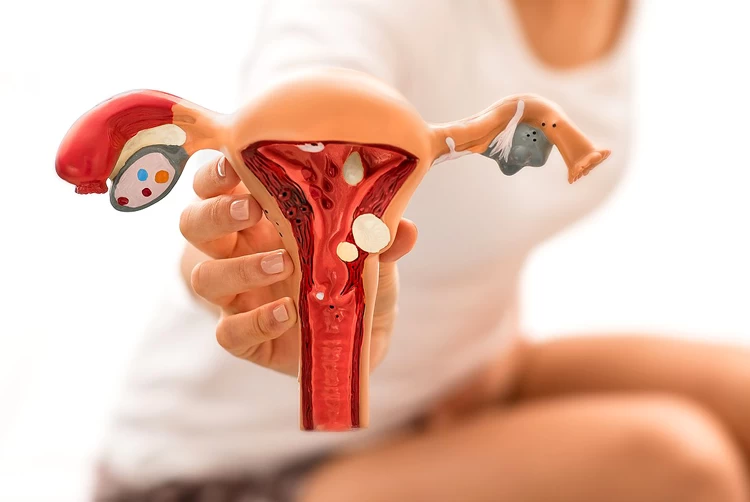

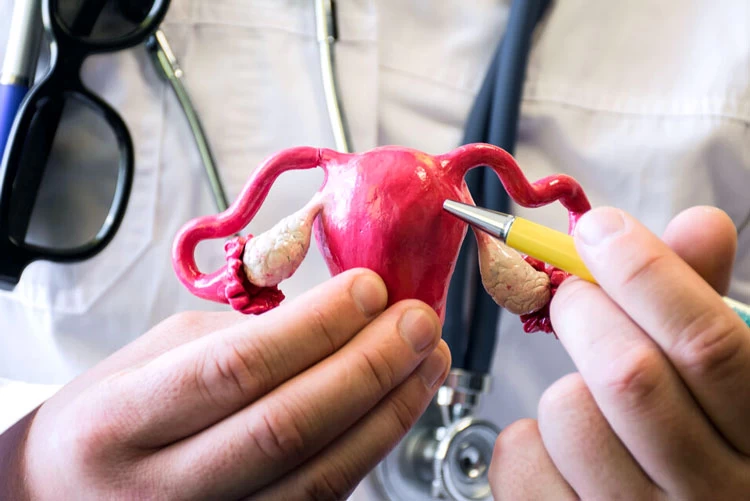




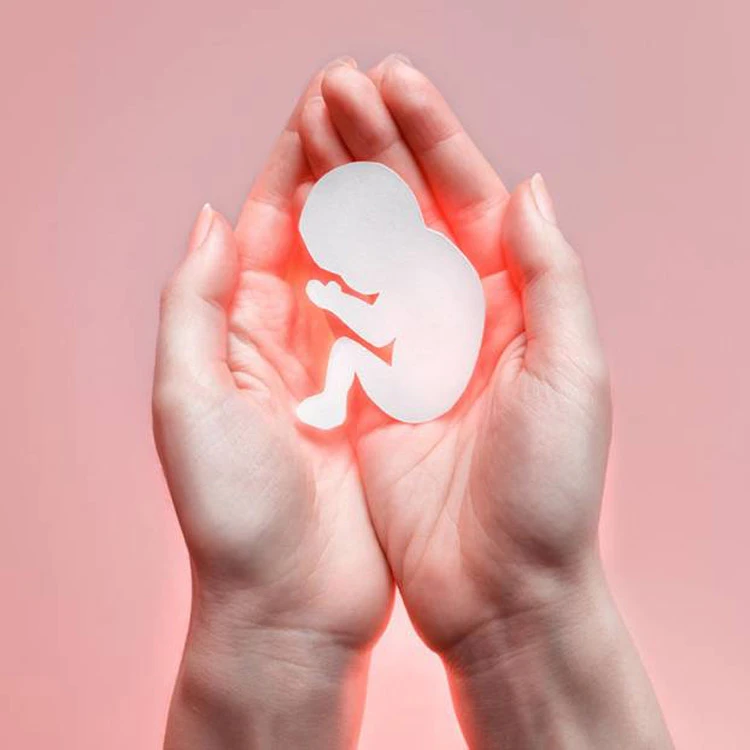
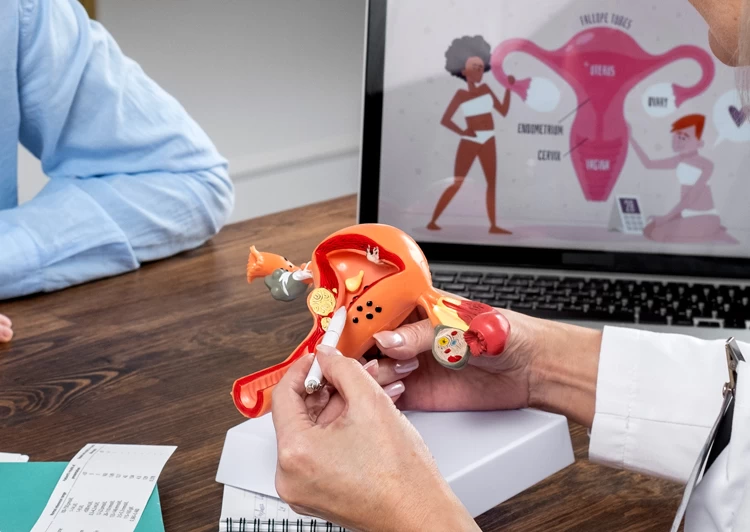
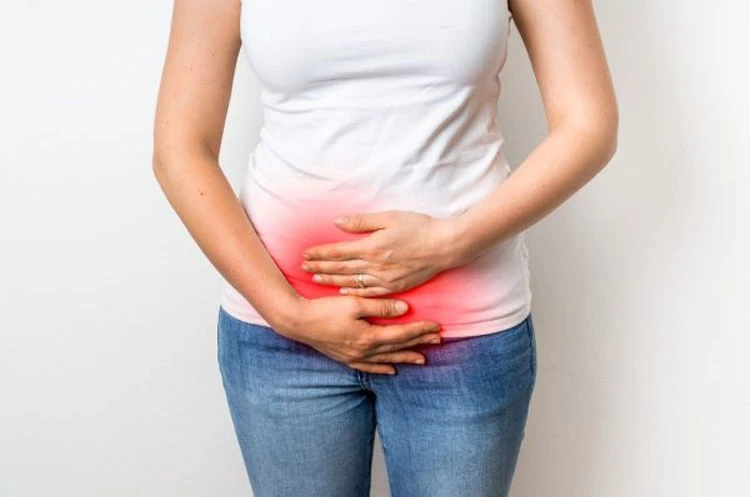


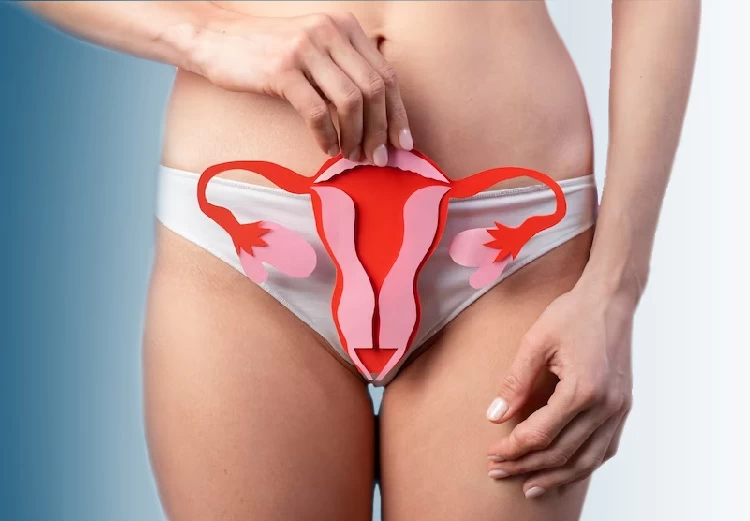
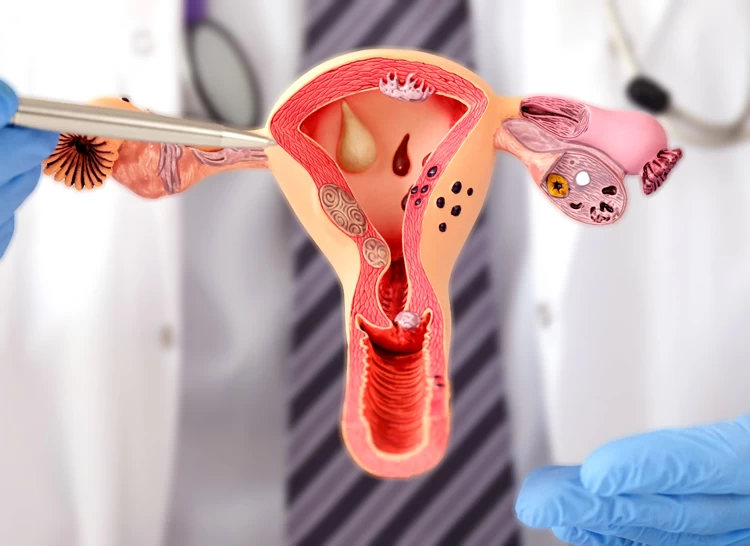
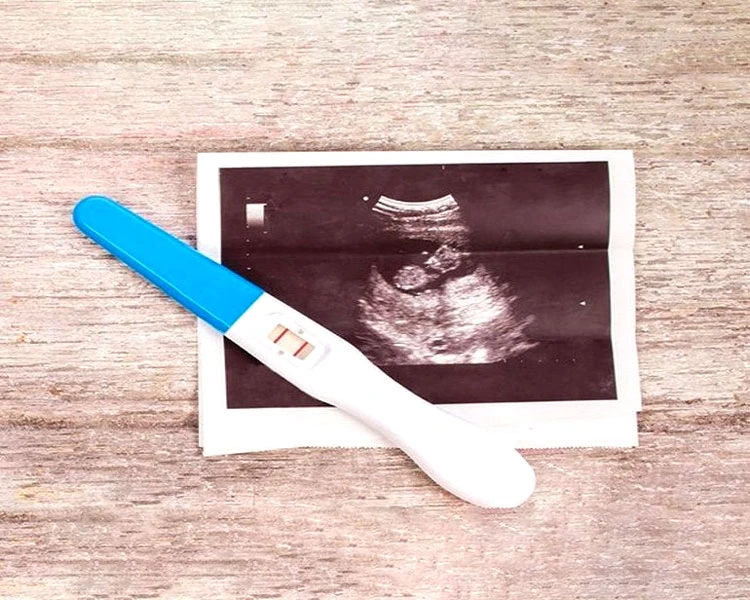

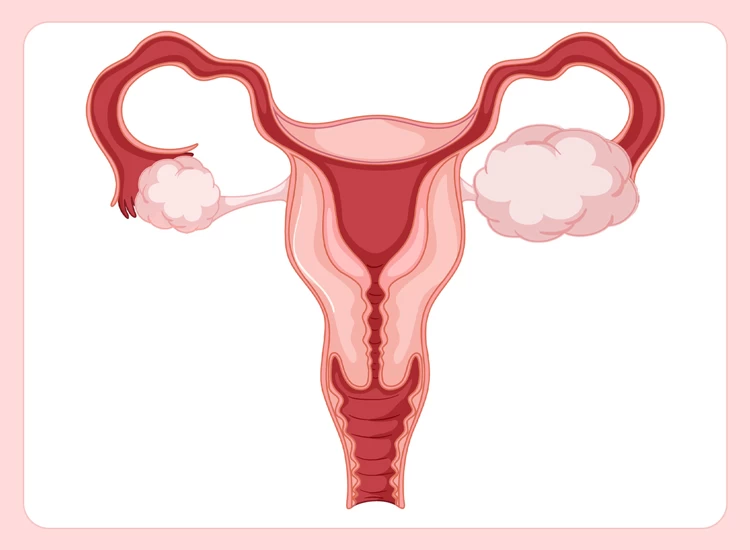
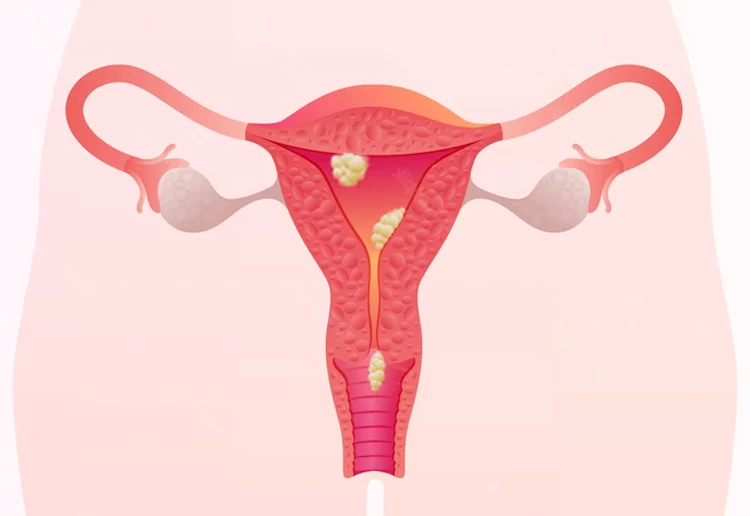


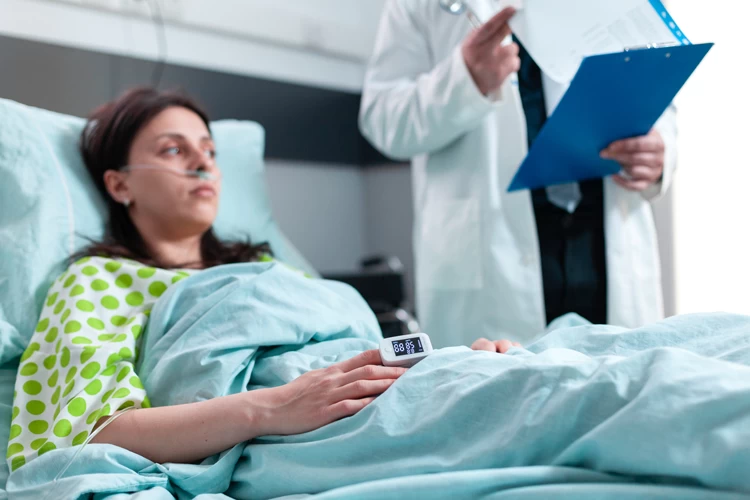


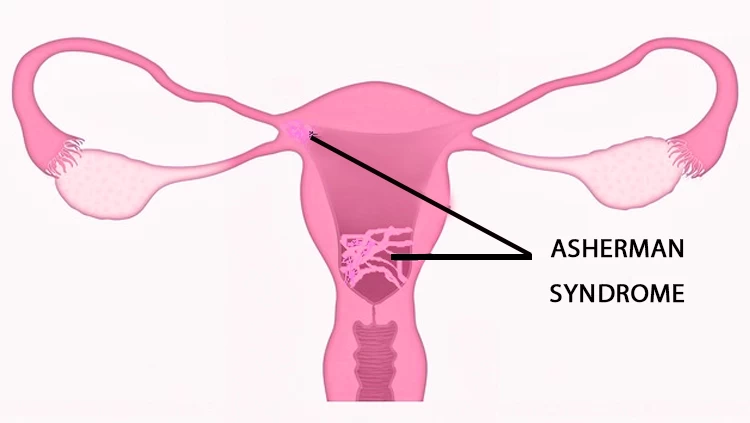
User
-Infertility in women is a multifaceted and intensely personal matter that impacts a large number of women and couples globally. Finding practical solutions and support for female infertility requires an understanding of its causes, which can be a difficult journey.